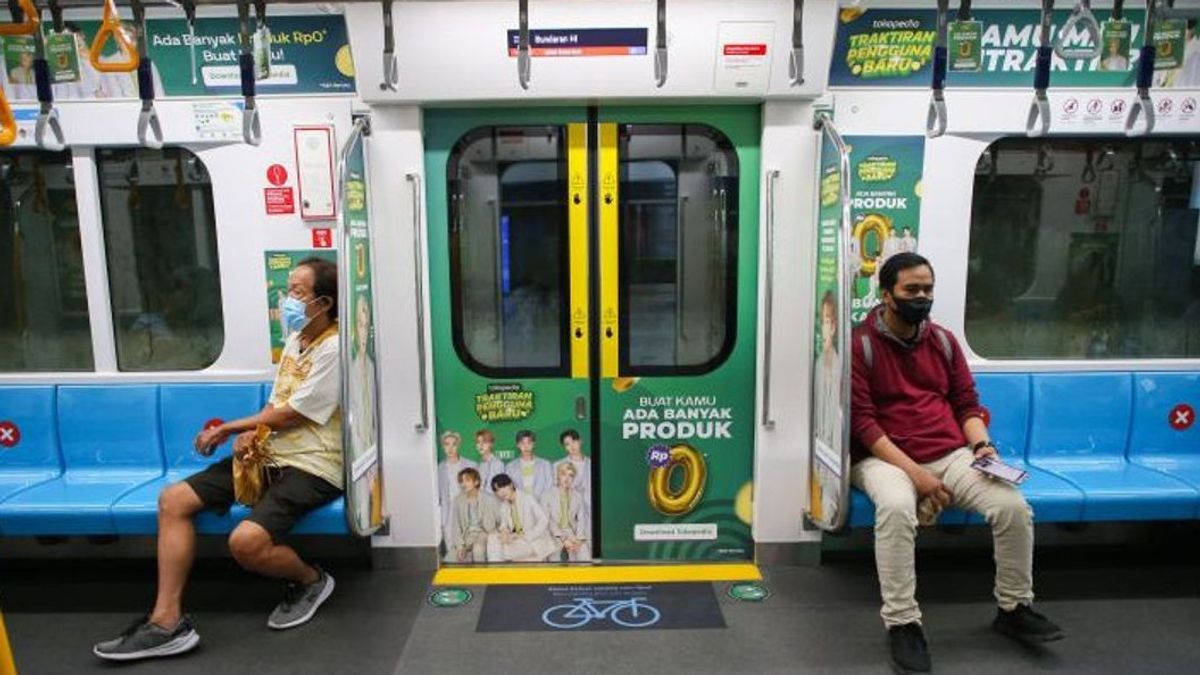JAKARTA - Secretary of Commission B of the DKI Jakarta DPRD, Pandapotan Sinaga, admitted that until now there is no certainty regarding the determination of tariffs for Jakarta transportation integration.
In fact, the DKI Provincial Government has proposed travel fares using public transportation, namely Transjakarta, MRT Jakarta, and LRT Jakarta with a nominal value of Rp. 10,000.
However, at the last meeting on March 23, this discussion is still hanging because it has not been approved by the board members.
"There has been no decision on the integration tariff. That was all yesterday's discussion. After that, there has been no discussion. Maybe next week we will continue this discussion," Pandapotan said when contacted, Tuesday, May 17.
Pandapotan could not confirm the date for the follow-up meeting to be held. What is clear is that the DPRD is waiting for DKI Jakarta Governor Anies Baswedan to return from Europe on 18 May. Remembering, while visiting the three European countries, Anies carried out several collaborations regarding transportation.
"Perhaps (Anies going to Europe) is one of his efforts to convince us. We will meet again later," he said. As is known, the plan to implement an integrated tariff for public transportation in Jakarta amounting to Rp. 10,000 has resulted in an agreement. Three times the DKI Provincial Government has met with the DKI DPRD to discuss this matter, but not all council members have agreed on the tariff.
In the last meeting, the DPRD questioned the value of benefits for the DKI Provincial Government and the people of Jakarta if public transportation fares were integrated. Considering that currently the amount of transportation fares for the three modes is still supported by subsidies from the DKI Regional Budget.
Based on the calculations of the DKI Provincial Government, in 2021 the profit of Transjakarta, MRT, and LRT on ticket revenues is Rp. 292 billion. If the integration tariff has been applied, the income of the three modes will be minus IDR 4 billion.
When the income of transportation managers decreases, it will automatically affect the burden of subsidies or public service obligations (PSO) given by the DKI Provincial Government.
What is also a problem, said Member of Commission B of the DKI DPRD, Manuara Siahaan, is whether the DKI Provincial Government can ensure that the beneficiaries of transportation integration are dominated by Jakarta residents.
"Who is the biggest beneficiary of this PSO? The data presented shows that in fact the largest beneficiary is people who live outside DKI Jakarta. This means, if later the PSO is funded by the APBD, because the largest flow will be from Jabodetabek," said Manuara some time ago. .
The English, Chinese, Japanese, Arabic, and French versions are automatically generated by the AI. So there may still be inaccuracies in translating, please always see Indonesian as our main language. (system supported by DigitalSiber.id)








